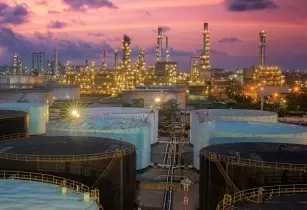The recent passing into law of Nigeria’s Petroleum Industry Act (PIA), and the establishment of the Upstream Petroleum Regulatory Commission (NUPRC) (www.NUPRC.gov.ng), marks the beginning of an era for the energy sector in Nigeria, West Africa and the continent at large
It confirms that Africa is taking control of its own resources and setting the agenda for how they will be deployed.
Global oil industry investors will have an opportunity to inspect the granular detail of the act and how they can get involved at the forthcoming Africa Oil Week, where NUPRC's chief executive officer Gbenga Komolafe and other senior Nigerian oil officials will engage with stakeholders on the new dispensation.
The Nigerian oil industry has grown significantly, and the energy landscape has changed enormously – hence the need for a new approach. Nigeria remains Africa’s leading oil producer, with production of 86,9 mt during 2020. At the same time, oil plays a significant part in Nigeria’s domestic economy, with the oil and gas sector accounting for around 5.8% of the country’s GDP and 95% of its foreign-exchange earnings in 2019.
The Act has come with a renewed assertiveness in the Nigerian oil sector, with underdeveloped assets being reallocated and Komolafe signalling a commitment to building synergy and smooth industry operations in the national interest.
The new PIA dispensation will allow for the more efficient and sustainable allocation of Nigeria’s oil assets in the best interests of Nigerians and African people at large. That said, the new environment is deeply complex, and the ambit of the new regulations is vast.
The NUPRC, for instance, is tasked with ensuring compliance to petroleum laws, regulations and guidelines, as well as monitoring operations at drilling sites, wells, production platforms and flow stations, crude oil export terminals, refineries, storage depots, pump stations, retail outlets and pipelines.
It must also supervise all petroleum operations carried out under licences in the country, monitor operations to ensure they are in line with national goals; ensure health, safety and environmental compliance; maintain records on petroleum reserves, production, licences and leases; advise government on technical and policy matters, process licence applications; collect government revenues and maintain and administer the National Data Repository (NDR).
Besides the NUPRC, the Petroleum Act also established the Nigerian Midstream and Downstream Petroleum Regulatory Authority (NMDPRA) (https://www.NMDPRA.gov.ng). Together, they are responsible for the technical and commercial regulation of petroleum operations in their respective sectors, and have the power to acquire, hold and dispose of property.
The Act provides for the Nigerian National Petroleum Company to be run as a quasi-commercial enterprise, with its shares jointly held by the ministries of finance and petroleum.
The PIA also establishes a hydrocarbons tax, to be levied on income from oil companies’ onshore resources such as crude oil, condensates, and natural gas liquids. The wide-ranging area of responsibility covered by the PIA, and the use of terms that have yet to be clarified in court, makes for a complicated piece of legislation that bears further explanation.








